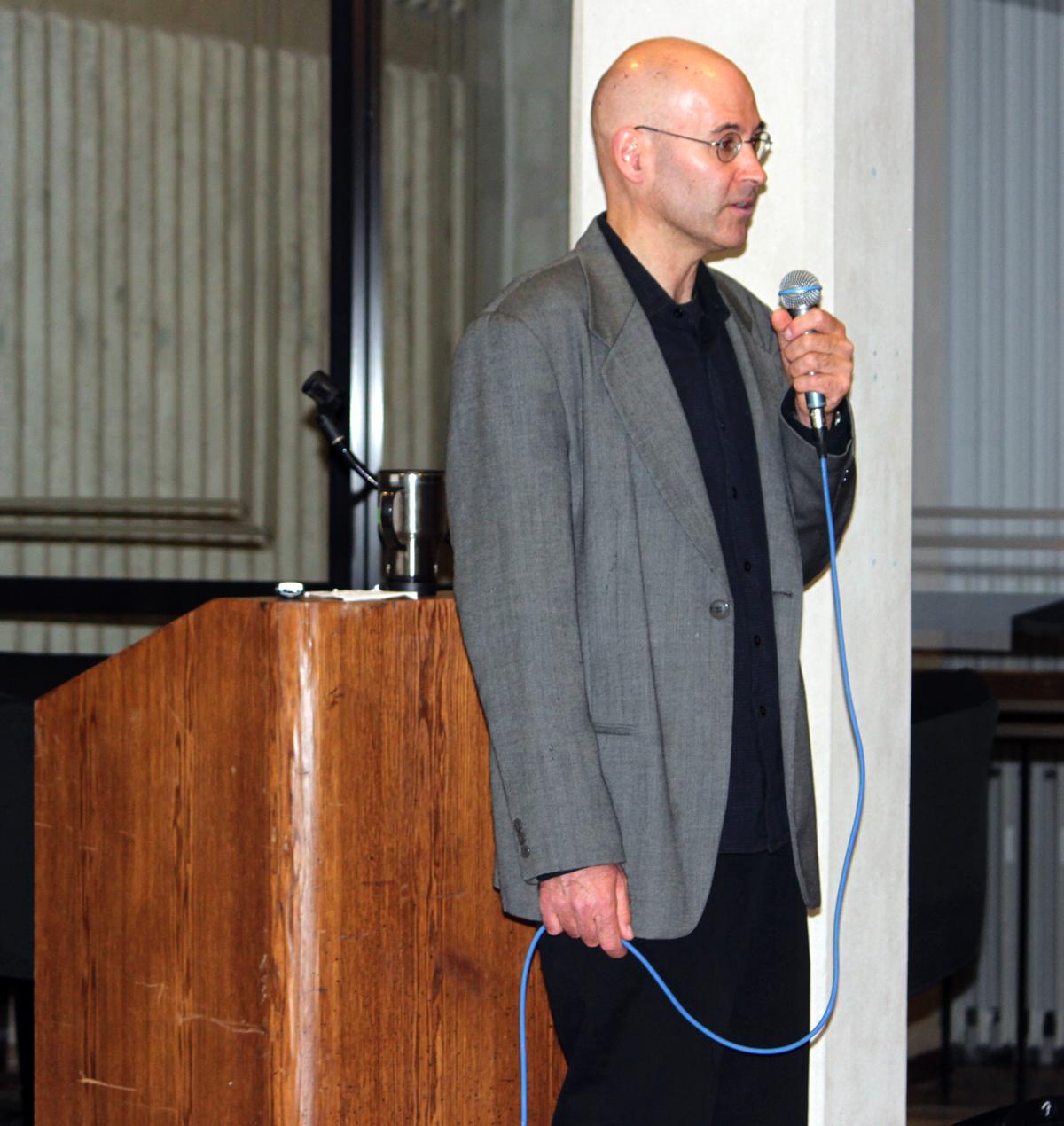Photographer speaks out for conservation
The way we use energy is destroying and contaminating habitats, an environmental photographer said in a speech Wednesday. Garth Lenz delivered the speech, titled “The True Cost of Oil,” in the Tippets Gallery.
The speech was part of the Caine College of the Arts’ Crossroads Project, a series of events explaining sustainability issues through art and science. Lenz said it is important everyone works together to accomplish the goals of the project.
“We really need to think about the things that connect us. And I think one of the things that connects us is our home: the natural world, and the world that sustains us all,” he said. “When we’re involved in these issues, we think that there’s an us and there’s a them. We are them. We are all part of the problem, and we all have to be part of the solution.”
Lenz said the oil industry severely affects the Canadian environment: species have gone extinct and forests have been destroyed. Toxic chemicals, such as mercury, arsenic, and powerful carcinogens have leaked from tailings ponds into water supplies like the Athabasca River. Extremely high rates of severe forms of cancer are found in communities that depend on the river for food. Parents are forced to choose between feeding their children tainted fish or letting them starve.
“As a parent, I think that if I am going to bring a life into this world, then I need to commit my life to ensuring that they can have the same future, the same security, and the same opportunities that you can only have with a healthy planet, as we have all had,” Lenz said.
These problems are not just found in Canada, he said; they are present across the world.
“Our children and our grandchildren are going to inherit either the mistakes or the benefits of our actions,” Lenz said. “We have to decide what is the image of the future that we are going to hand our future generations.”
Robert Davies, a collaborator of the Crossroads Project, said there are many things even college students can do to improve the world.
“What you eat has an energy footprint. What you drive has an energy footprint. The lights you use have an energy footprint, and how Utah State University does things has an energy footprint. We need to pressure the institutions in our lives to change it.”
Lenz said this doesn’t mean every student needs to be an environmentalist.
“There are enough environmentalists. We need new voices. We need the voices of taxi drivers and bus drivers and doctors and soldiers and physicians and everybody. We need different ways to look at this to communicate different things, and we all need to get together and do it,” he said.
He said that small things, such as riding a bike instead of driving or cutting down on waste, can help to solve these problems.
“When I think of our population, I think of seven billion souls committed to trying to find an answer,” he said, “I think there’s an incredible power and hope in that.”
USU student Amanda Marshall, who attended the speech, said the speech brought the issue home.
“It’s not something we as young adults really worry about,” Marshall said. “It’s really just a reality check, like getting out of our bubbles and thinking out of our little cultures we have here and seeing the whole world and the big picture, and how our decisions really are affecting people.”
For those who feel as if they are too insignificant to make a difference, sculptor and Crossroads collaborator Lyman Whitaker said, “Don’t worry about succeeding; just worry about doing something.”
The True Cost of Oil Speech was the third of five events being presented at USU. The final event will be Oct. 3 and Oct. 10 in the Tippets Gallery in the Chase Fine Arts building at 7:30 p.m. Details for other Crossroads Project events may be found on the Crossroads Project website at http://thecrossroadsproject.org.
– sara.mcquivey@gmail.com

